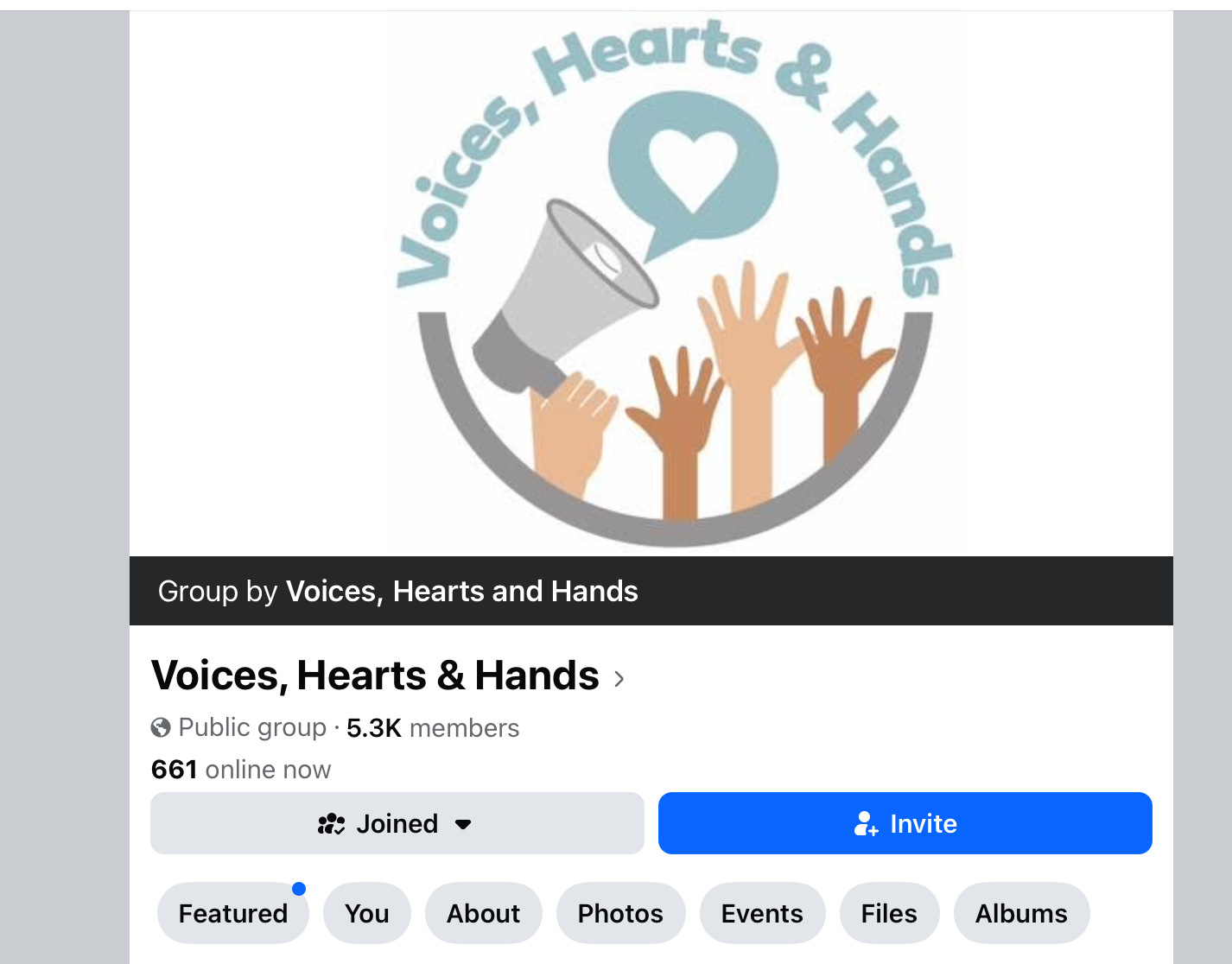Interview with Voices, Hearts, & Hands Advocacy Group on Facebook
An Amazing Group to Connect People Searching for Missing People
Interview with Voices, Hearts, & Hands Advocacy Group on Facebook
Want to be a Citizen Detective? Get our PDF on investigating cold cases at home!
I came across Voices, Hearts, & Hands early in my YouTube journey and connected with them and found they had a real passion for connecting people to missing people cases and solving crimes. I am inspired by their advocacy daily and it is people like them that have really gone from concerned citizen to advocates that are incredibly inspiring. This is their story of how it came to be.
What inspired you to start Voices, Hearts, & Hands, and what personal experiences led you to this work?
What initially inspired VHAH was the case of a local missing women that few members in the community had even heard about. We realized that we needed to step up and help spread awareness so that she had a better chance of coming home safely. We not only organized groups for canvasing of the community while handing out flyers, but physical grid searches of the area.
A personal experience that connected me to the missing was the loss of my best friend in elementary school. Her mother was an addict and unable to properly care for her. After some unsavory people tried to take my friend from school, her and her mother were whisked away out of town for their safety. We found each other again when we were in high school, but unfortunately, a similar pattern repeated and we lost touch again. I spent years trying to reconnect with her. Scouring the Internet and contacting everyone that I could. In 2019, I found her again! We talk regularly now.
What is these core mission of your organization, and how has it evolved since its founding?
The core mission of VHAH has always been to be a voice for those that didn’t have one. Our mission statement is to be voices for those that can’t speak, offering our hands in service, simply because our hearts call us to do so.
What are some of the biggest challenges families face when a loved one goes missing? How do you work with law enforcement, media, and the community to keep cases in the public eye?
One of the biggest challenges for families when someone goes missing is to spread awareness of the case. The police often have limited resources and time to get the word out. Once a missing persons report is filed, the police have certain steps they must take and red tape to wade through. While we are confident that they are doing their job, we hope to come along side law enforcement and the family to help in any way possible. It is our hope that we can help bridge the gap of precious moments that may be lost between the police running an official investigation, and getting the word out to the eyes and ears of any community - its people. Social media is the key to reaching a lot of people quickly. We have also made some connections with the media while working cases that we reach out to when needed.
Can you share a success story where your advocacy made a real difference in a case?
The very first case we worked on was the local missing woman I mentioned before. It was a hard case. We worked directly with the family of the missing woman and checked in with the detective in charge of the case regularly. At the conclusion of the case, the assistant district attorney personally came up to us in court and thanked us for all that we did. It was humbling to know that we made that much of an impact and it sealed our desire to form the nonprofit and keep advocating.
What are the most common misconceptions about missing persons cases?
A few common misconceptions about missing persons are 1. That fellow police departments are aware. We have run several cases where we interacted with neighboring departments and they were not aware of a person missing. In fact, awareness every where is severely lacking and is a big passion of ours. That’s part of why we do what we do. 2. Runaways. We deal with so much flack when we cover runaways because people feel that working those cases are a waste of resources. That may have been the case years ago, but in today’s world of human trafficking a runaway is at such a greater risk of being taken advantage of because they are out there without resources, and they are vulnerable. In fact, according to the National Center of Missing and Endangered Children, 1 out of 5 runaways are victims of trafficking. That’s a scary number, so we do our best to work runaway cases as well, even if they may end up being repeat offenders.
How can the public support your work—whether through volunteering, donating, or spreading awareness?
We value the support of the public. We couldn’t do what we do without the help of the community . Please join our Facebook group and help in sharing the flyers for the missing. We also have Venmo and PayPal for donations. We use all of the money directly for cases or the families involved. We are a nonprofit, so any donation is tax deductible.
What keeps you motivated to continue this work despite the emotional toll?
The families that we help are what keep us motivated to continue doing the work. Their thanks and their smiles are worth every moment spent working a case. Our hope is for healing and wholeness for them all. Until then, we will continue.
If you liked this article, you’ll love Inside The Mind of a Serial Killer.



